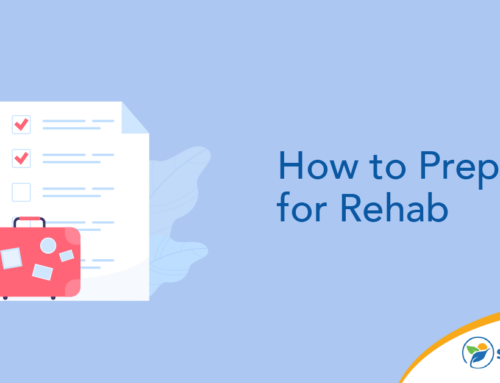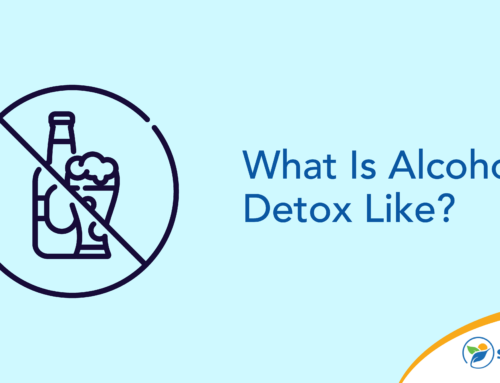Watching a loved one struggling with addiction can be heartbreaking. You may fear for your loved one’s safety and worry about the long-term mental, emotional and physical effects of drugs or alcohol. Understanding that treatment is the best way to help your friend or family member, you may begin to investigate how to put someone in rehab without consent.
The truth is that while many states do have laws that allow loved ones to force someone to go into rehab, meeting the criteria is often difficult. Even when a situation does fulfill the requirements, involuntary commitment into a treatment program may not be the best approach. In this post, we’ll explain why.
Understanding Addiction
Before getting into the details of how to commit an alcoholic or drug addict to rehab, it’s important that you understand some basics about addiction. Most importantly, addiction is a disease that affects both the body and mind. It’s not a choice that people make, and it’s not a moral failing.
People begin using drugs and alcohol for a variety of reasons. They may face social pressure from friends and acquaintances or turn to substances for stress relief. Genetics also play a role, with 40% to 60% of a person’s susceptibility to addiction being linked to inherited traits.
Some individuals who suffer from addiction drink or use drugs to self-medicate and ease physical or mental symptoms of a condition. For example, 43% of people who seek treatment for painkiller addiction have an underlying mental health disorder like depression or anxiety.
When a person begins abusing drugs or alcohol, they often have positive experiences that lead them to continue. Over time, drugs and alcohol cause physical changes that leave the body dependent on the substance to function properly. Once an individual reaches this state, it may become necessary for them to continue drinking or using drugs just to feel normal and avoid withdrawal symptoms.
Like any other disease, addiction is unlikely to be overcome without treatment. Your loved one likely can’t stop drinking or using drugs cold turkey, and if they do manage to abstain from substance use on their own, there’s a good chance they’ll experience a relapse in the future without ongoing support.
The Role of Intervention
When you’re concerned for your loved one’s safety and well-being, learning how to put someone in rehab without consent may seem like a good idea, but it’s often not the best way to get someone the help they need.
Treating addiction is different from managing other lifelong conditions. Although medical interventions can ease symptoms of withdrawal, there’s no pill that will cure addiction, and because substance use disorder affects the mind as well as the body, treatment must usually involve therapy to be successful.
As a result, how well treatment works depends on your loved one’s willingness to make changes and break free of the cycle of addiction. If your loved one is in treatment against their will and isn’t ready to work through the issues that led to their substance use, rehab may not provide the benefits you hope for.
Helping your loved one see the harm that addiction is causing both them and your family is often a better approach to getting someone help than involuntary commitment. An intervention can potentially accomplish this goal.
Done in consultation with a health care professional or an addiction specialist, an intervention is a carefully designed plan that involves gathering a person’s loved ones and meeting with them in a safe, comfortable setting. Everyone in attendance takes turns expressing their feelings and worries.
After everyone speaks, the person suffering from addiction is then invited to enter a substance abuse treatment program, and loved ones pledge their support to help the individual succeed. When executed properly, interventions can be a wake-up call for a person with addiction, giving them the encouragement they need to begin treatment without requiring an involuntary commitment.
How to Put Someone in Rehab Without Consent: Legal Considerations
Thirty-eight states have laws that allow loved ones to put someone in rehab without their consent. The details of the laws vary greatly.
In some states, there are loose guidelines that allow people to commit friends and family members to rehab frequently. For example, Massachusetts forced 6,500 people into rehab in 2016 alone.
Other states set a very high standard of proof that loved ones must meet before they can take legal action. A person may need to suffer an overdose or commit a crime before they can be sent to treatment involuntarily. States may also have different laws for minors than for adults, making it somewhat easier for parents and legal guardians to commit their children.
One important thing to note is that involuntary addiction treatment may not mean your loved one will have access to high-quality care. Take Massachusetts as an example. There, 70% of beds for men in involuntary addiction treatment are in prisons. Participants in these involuntary programs wear orange jumpsuits just like prisoners and are largely overseen by corrections officers rather than people trained to work with people struggling with addiction.
If you feel like you have no choice but to commit your loved one involuntarily, the first step is to seek the help of an attorney with experience in the area. They can evaluate your case, explain the laws of your state and inform you of potential next steps.
Exploring Alternatives
If you live in a state where laws don’t allow you to force someone to go into rehab or want to avoid involving the legal system, there are other things you can do. Staging an intervention is one option. You can also:
- Encourage open communication. Let your loved one know you’re a safe person to talk to. By remaining connected to them, you may be able to help steer them toward treatment over time.
- Set boundaries. Establish personal boundaries to encourage proper behaviors. For example, you might tell your loved one that they’re no longer welcome to visit you when they’re under the influence or stop supporting them financially.
- Provide support. Ensure your loved one knows you’re there to help them every step of the way. Give concrete examples of what you’ll do to assist them, such as providing childcare while they’re in rehab or allowing them to live with you when they return from treatment.
Seeking Professional Guidance
If you’re worried about a loved one’s drug or alcohol use, an addiction specialist can help you determine the best path forward. They can assess the situation and give you advice on whether to proceed with involuntary commitment, stage an intervention or take a different approach. Contact Sunlight Recovery today to connect with an addiction specialist and get on the path to helping your loved one.







